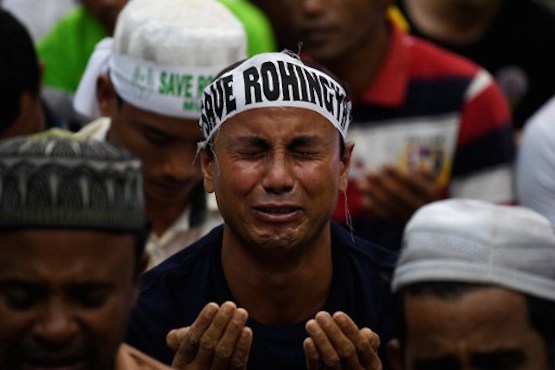Several nations are known, even outside the small company of human rights advocates, for violating the rights of its people to religious freedom and for persecuting believers. But there are other nations, also oppressing people of faith, which are not as well known. Malaysia is one of the latter.
China and Nigeria have achieved wide notoriety for their actions suppressing freedom of religion or belief, due in large part to work by human rights and religious freedom activists. But not much has been in the news about Malaysia.
Malaysia is one of those countries that doesn’t generate the interest of most media outlets. There are too many other crisis spots or issues. It is a matter of great interest to Malaysians whose freedom of religion is being violated, though. And therefore it should be of interest to all who care about Freedom of Religion or Belief (FoRB). (This is now the chic term, by the way, used by the UN and other cognoscenti: Freedom of Religion or Belief aka FoRB. You’re not supposed to just say “religious freedom” anymore!)
The recent release of reports from three different entities regarding FoRB in Malaysia. Even though Malaysia appears to have good constitutional provision for religious freedom, these reports have provided new documentation of Malaysia’s unwillingness to implement those constitutional freedoms and documents oppressive actions against Christians and others.
First there was the release of a briefing paper by the International Committee of Jurists (ICJ) in March of last year, 2019. The paper, “Challenges to Freedom of Religion or Belief in Malaysia” was sponsored by the International Panel of Parliamentarians for Freedom of Religion or Belief, the Norwegian Ministry of Foreign Affairs, and the Norwegian Helsinki Committee.
Part of a follow up to the visit by the UN Special Rapporteur on Cultural Rights to Malaysia in September 2017, the ICJ report focused on six key issues. These issues concern the implementation in practice of Malaysia’s constitutional provisions, federal laws, and Islamic laws in the context of freedom of religion or belief:
- discrimination against religious minorities
- limitations on the rights of children relating to personal matters governed by Islamic law
- discrimination against persons who wish to change or adopt a new religion
- criminalization and prosecution of proselytism among Muslims
- prohibitions on the use of the word ‘Allah’ by non-Muslims
- relationship with freedom of expression and the crime of sedition
The second document, is the US State Department’s annual report on International Religious Freedom (IRF), issued in June 2020. The IRF report covers events that took place in Malaysia in 2019. Once again we have a report that doesn’t paint a rosy picture regarding the situation on the ground. Some of the documented concerns of the US Government include the universal conversion of children by one parent without the permission of the other, the disappearance of three Christians along with a Muslim activist, and the lack of respect for the rights of religious minorities.
Noted in the State Department report is the conflict between Malaysia’s civil law and Sharia (Islamic law). The IRF report says, “The government maintains a parallel legal system, with certain civil matters for Muslims covered by sharia. The relationship between sharia and civil law remains unresolved in the legal system.” Elsewhere, it adds, “When civil and sharia jurisdictions intersect, civil courts continue largely to give deference to sharia courts, creating situations where sharia judgements affect non-Muslims.”
Also during the month of June, the US Commission on International Religious Freedom, (USCIRF) issued a press release urging the Malaysian authorities along with those of Thailand to protect Rohingya refugees who are currently stranded at sea after fleeing from persecution in Burma. This minority Muslim community has been seeking refuge in Bangladesh for some time, but the country was overwhelmed by the sheer number of people that were driven from their homes. Therefore, the Rohingya turned their eyes towards Thailand and Malaysia.
USCIRF Commissioner, Johnnie Moore, was quoted in the release stating, “The Rohingya people have faced unimaginable horrors in their home country of Burma.” And Commission Chair, Gayle Manchin said, “Thai and Malaysian authorities must recognize their obligations under international law to refugees fleeing ethnic and religious violence.” She continued, “USCIRF urges them to grant refuge to Rohingya Muslims fleeing ethnic cleansing in Burma. If not, hundreds could perish at sea.”
This is not the only action that USCIRF has taken regarding Malaysia. In its annual report for 2020 the Commission recommends that Malaysia be designated as a Country of Particular Concern by the State Department for the same problems expressed in the reports of the ICJ and State’s own IRF report. It has also made the recommendation that the country be placed on the Special Watch List for its treatment of Religious Minorities.
Although this is a brief snapshot into the issue of FoRB in Malaysia, it is good to see that in spite of the lack of press notoriety on the nation’s violations of religious freedom, those who are serious defenders of FoRB, like the International Committee of Jurists, the US State Department’s Office of International Religious Freedom, and the US Commission on International Religious Freedom are taking steps to highlight the problems and help religious minorities in Malaysia.
No comments yet





